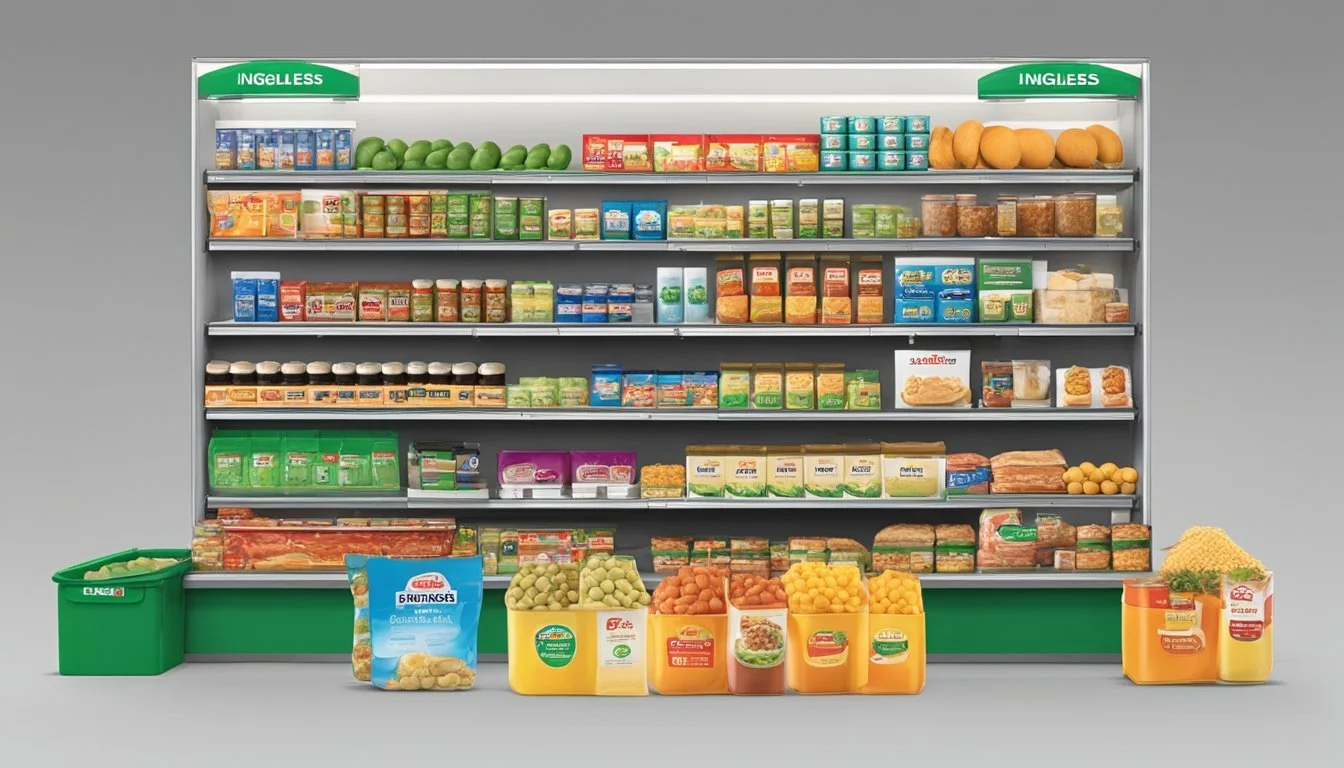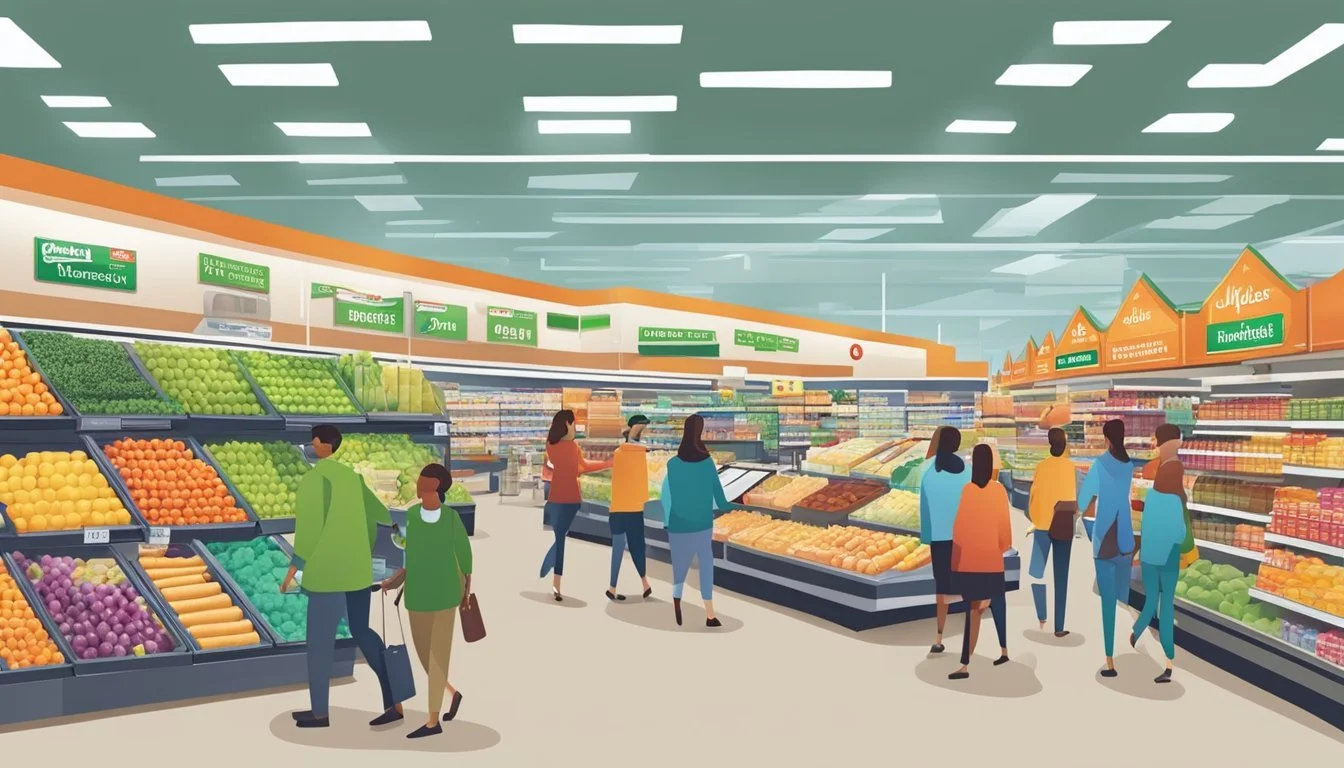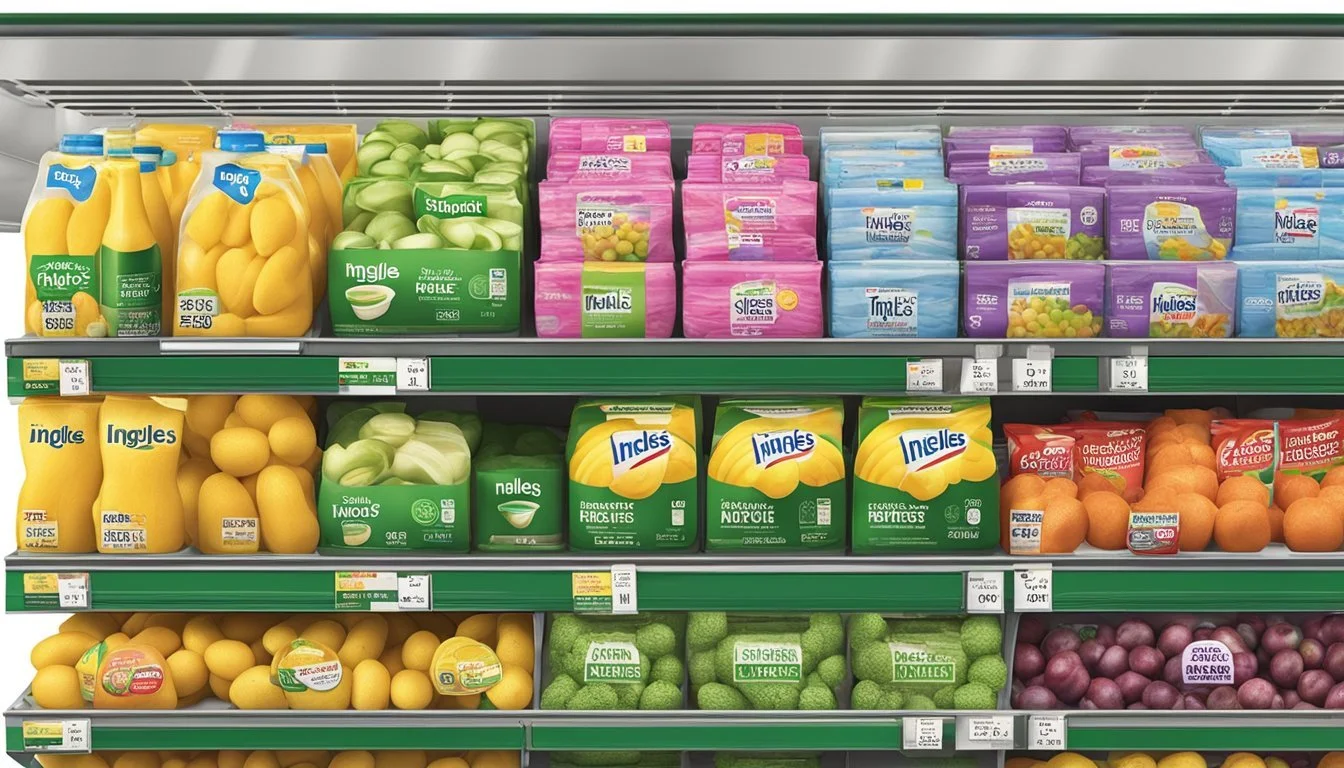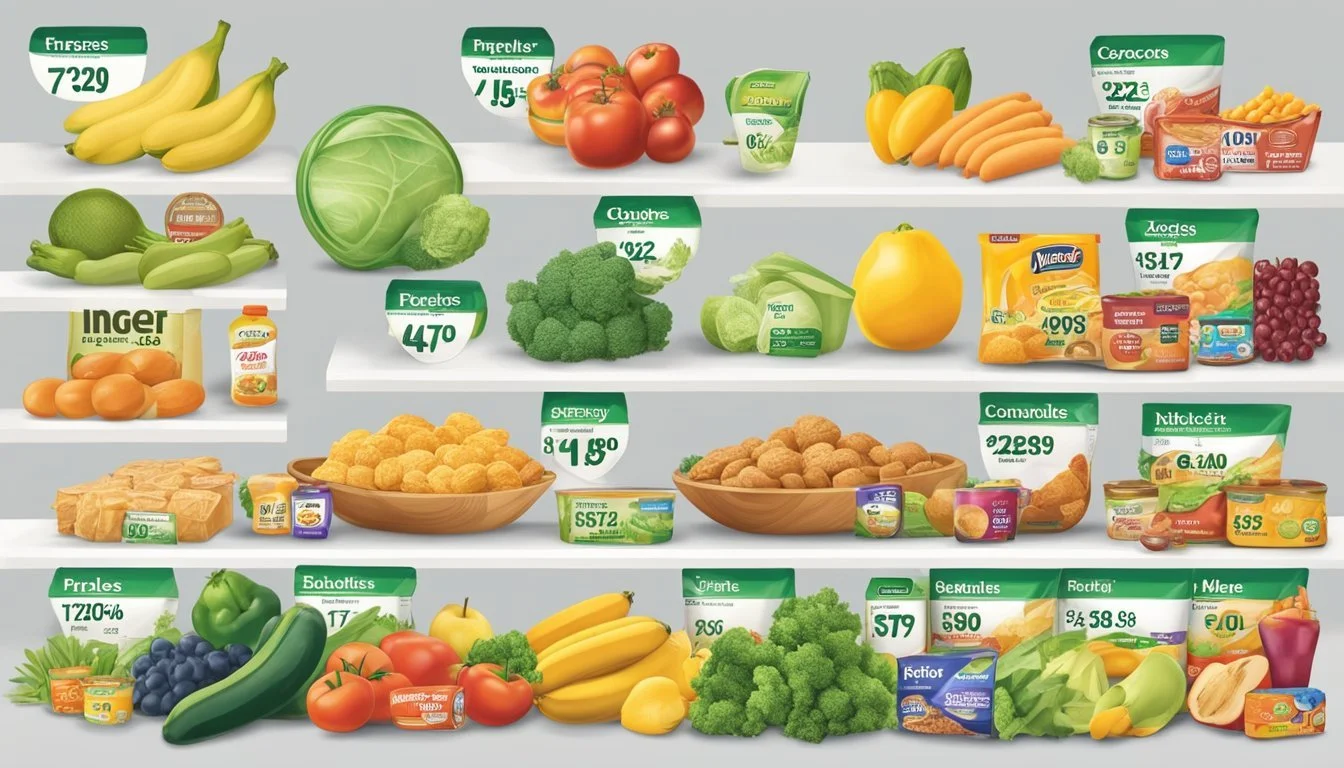Is Ingles Markets Cheaper Than Meijer?
A Price Comparison Analysis
Grocery shoppers often face the challenge of finding the best deals while maintaining quality. Ingles Markets and Meijer are two popular supermarket chains that cater to different regions of the United States. Both stores offer competitive pricing, but determining which one is consistently cheaper can be complex.
While prices can vary by location and change over time, Meijer generally tends to have slightly lower overall prices compared to Ingles Markets. This difference is often attributed to Meijer's larger scale operations and wider geographical presence. However, it's important to note that both chains frequently run promotions and sales that can significantly impact the final cost of a shopping trip.
Comparing these two supermarkets requires considering factors beyond just price. Ingles Markets, primarily serving the southeastern United States, is known for its focus on local products and fresh produce. Meijer, with a stronger presence in the Midwest, offers a wider range of non-grocery items alongside its supermarket offerings. Shoppers should weigh these aspects along with pricing when deciding where to make their purchases.
Overview of Ingles and Meijer
Ingles Markets and Meijer are prominent supermarket chains in the United States. Both offer a wide range of groceries and household items, competing for customers in their respective regions.
History and Expansion
Ingles Markets was founded in 1963 by Robert Ingle in Asheville, North Carolina. The company started with a single store and gradually expanded throughout the Southeastern United States. Ingles focused on serving rural and suburban communities, often becoming an integral part of local economies.
Meijer, on the other hand, has a longer history dating back to 1934. Hendrik Meijer opened his first store in Greenville, Michigan during the Great Depression. The company pioneered the supercenter concept, combining groceries with general merchandise. Meijer expanded steadily across the Midwest, becoming a regional powerhouse.
Store Presence and Location
Ingles Markets operates over 200 supermarkets across six Southeastern states: North Carolina, South Carolina, Georgia, Tennessee, Alabama, and Virginia. The chain maintains a strong presence in smaller towns and rural areas, often serving as a community hub.
Meijer boasts a network of more than 240 stores spread across six Midwestern states: Michigan, Ohio, Indiana, Illinois, Kentucky, and Wisconsin. The company's supercenters are typically larger than traditional grocery stores, offering a one-stop shopping experience. Meijer stores are commonly found in suburban areas and mid-sized cities, catering to a diverse customer base.
Price Comparison Strategy
Ingles Markets and Meijer employ distinct pricing strategies to attract customers and remain competitive. These approaches encompass core pricing policies and targeted discount programs.
Pricing Policies
Ingles Markets focuses on everyday low prices for staple items. The chain aims to provide consistent value on frequently purchased groceries and household goods. Meijer, in contrast, adopts a hybrid approach. The retailer offers competitive prices on a wide range of products while also featuring weekly specials.
Both chains adjust prices based on local market conditions and competitor pricing. Ingles tends to be more regionally focused, tailoring prices to specific communities. Meijer's larger footprint allows for broader pricing strategies across multiple states.
Discount and Sales
Ingles Markets runs weekly ads featuring temporary price reductions on select items. The chain also offers digital coupons through its loyalty program. These coupons provide additional savings on both store brands and national products.
Meijer is known for its "mPerks" rewards program. This digital platform offers personalized deals and cash-back rewards. The retailer frequently runs "10 for $10" promotions on popular items. Meijer also offers price matching on identical products from local competitors.
Both chains have increased their focus on digital savings tools to help customers combat inflation. These apps allow shoppers to easily track deals and maximize their grocery budgets.
Product Selection and Quality
Ingles Markets and Meijer both offer diverse product selections, but they differ in certain areas. Each store has its strengths when it comes to variety, quality, and exclusive offerings across different departments.
Fresh Produce and Organic Options
Ingles Markets prides itself on its Fresh Market concept, featuring a wide array of fruits and vegetables. The produce section often includes locally sourced items, supporting regional farmers. Organic options are available, though the selection may be more limited compared to some competitors.
Meijer, on the other hand, boasts an extensive produce department with a robust organic section. The store typically offers a broader range of exotic and specialty fruits and vegetables. Meijer's commitment to freshness is evident in its frequent produce deliveries and quality control measures.
Both stores strive to maintain high standards for their produce, but Meijer often edges out with a larger variety and more comprehensive organic selection.
Deli and Bakery
Ingles Markets' deli department offers a selection of meats, cheeses, and prepared foods. Their bakery produces fresh bread, pastries, and cakes daily. The focus is on traditional favorites and regional specialties.
Meijer's deli and bakery sections tend to be more expansive. The deli often features a wider range of international cheeses and specialty meats. Meijer's bakery typically offers a larger variety of artisanal breads and gourmet desserts.
Both stores provide custom cake ordering services, but Meijer generally offers more options for customization and design.
Meat and Dairy
Ingles Markets emphasizes its meat department, often featuring locally sourced options and in-house butchers. The dairy section includes standard offerings with some regional brands.
Meijer's meat department is typically larger, with a wider selection of cuts and pre-packaged options. Their dairy section often includes more variety in milk alternatives, yogurts, and specialty cheeses.
Both stores maintain high standards for meat quality, but Meijer usually offers a broader range of options, especially in terms of pre-marinated and ready-to-cook items.
Private-Label Brands and Exclusives
Ingles Markets offers its Laura Lynn private-label brand across various product categories. These items are generally positioned as budget-friendly alternatives to national brands.
Meijer has a more extensive private-label program, including brands like Meijer, True Goodness, and Purple Cow. These cover a wide range of products, from pantry staples to organic items and premium offerings.
Meijer's private-label selection is typically more diverse, with options that compete not just on price but also on quality with national brands. Ingles' Laura Lynn brand focuses more on providing value alternatives in essential categories.
Shopping Experience and Convenience
Ingles Markets and Meijer prioritize customer satisfaction through their store layouts and offerings. Both chains aim to provide a pleasant shopping environment with a focus on meeting diverse consumer needs.
Store Layout and Cleanliness
Meijer stores are known for their spacious layouts and wide aisles. Clear signage helps customers navigate the store efficiently. The company emphasizes cleanliness, maintaining well-organized shelves and departments.
Ingles Markets also focuses on cleanliness and organization. Their stores typically feature a logical flow, guiding shoppers through different sections. Both chains regularly clean and sanitize high-touch areas to ensure a hygienic shopping environment.
Meijer often incorporates modern design elements in their stores, while Ingles Markets may have a more traditional supermarket feel. This can affect the overall shopping atmosphere and customer perception of each brand.
One-Stop Shop Appeal
Meijer positions itself as a supercenter, offering groceries alongside general merchandise. This allows customers to complete multiple shopping tasks in one visit. Their stores often include pharmacies, garden centers, and electronics departments.
Ingles Markets, while primarily a grocery chain, has expanded its offerings in many locations. Some stores feature pharmacies, fuel centers, and small cafes. This diversification aims to increase convenience for shoppers.
Both chains stock a wide variety of products, from fresh produce to household items. This comprehensive selection can help consumers save time and potentially reduce their overall grocery bill by consolidating purchases.
Customer Loyalty and Satisfaction
Meijer and Ingles Markets have implemented loyalty programs to encourage repeat business. These programs typically offer personalized discounts and rewards based on shopping habits.
Customer satisfaction surveys consistently show high ratings for both chains. Factors contributing to positive feedback include:
Friendly and helpful staff
Product quality and freshness
Competitive pricing
Store cleanliness
Location convenience plays a significant role in customer loyalty. Both chains strategically place stores to serve their target demographics effectively.
Meijer's 24-hour operation in many locations provides added convenience for consumers with non-traditional schedules. Ingles Markets, while not typically open 24/7, maintains extended hours to accommodate diverse shopping needs.
Additional Services and Amenities
Ingles Markets and Meijer offer a range of services beyond basic grocery shopping. These additional amenities aim to provide value and convenience to customers.
Online Shopping and Pick-Up Options
Both Ingles Markets and Meijer have embraced digital shopping solutions. Ingles Markets provides online ordering through their Ingles Advantage program. Customers can browse products, create shopping lists, and schedule pickup times.
Meijer offers a more comprehensive digital experience. Their mPerks program includes digital coupons and personalized deals. Meijer's Shop & Scan service allows customers to scan items as they shop using their smartphones.
Both chains provide curbside pickup options. Meijer's Pickup service is available at all locations, while Ingles Markets offers curbside pickup at select stores.
Pharmacy and Wellness Services
Ingles Markets and Meijer both operate in-store pharmacies. These offer prescription services, immunizations, and health screenings.
Meijer pharmacies tend to have longer operating hours, often matching the store's 24/7 schedule. They also provide specialized services like pet medications and compounding.
Ingles Markets focuses on community health initiatives. Their pharmacies offer diabetes education programs and smoking cessation support.
Both chains provide generic prescription programs to help customers save money on medications. Meijer's program includes some free antibiotics and prenatal vitamins.
Impact of Competitor Retailers
Ingles Markets faces stiff competition from other major retailers in the grocery sector. These competitors influence pricing strategies and market dynamics, affecting Ingles' position relative to Meijer and other chains.
Comparison with Walmart and Target
Walmart's extensive reach and pricing power pose a significant challenge to Ingles Markets. Walmart often leads with lower prices on various items, including baking goods, canned goods, dairy, and personal care products. This pricing advantage can attract cost-conscious shoppers away from Ingles.
Target, while not primarily a grocery retailer, has expanded its food offerings in recent years. The company's focus on a more upscale shopping experience and exclusive brands can appeal to customers seeking quality over the lowest prices.
Ingles must balance competitive pricing with maintaining quality and service to differentiate itself from these large-scale competitors.
Grocery Sector Competitors
Kroger and Publix represent strong regional competition for Ingles Markets. Kroger's extensive private-label offerings and loyalty program can attract value-seeking customers. Publix, known for its customer service and quality products, competes on a different level.
Whole Foods targets health-conscious consumers with premium organic products, while Aldi focuses on no-frills, low-price offerings. These diverse competitors force Ingles to carefully position its pricing and product mix.
Ingles' strategy of market saturation and store upgrades aims to maintain its competitive edge against these varied rivals. The company must continually assess and adjust its approach to remain a viable alternative to both discount and premium competitors.
Financial Considerations for Consumers
Comparing Ingles Markets and Meijer involves examining pricing strategies, product offerings, and overall value for shoppers. Careful analysis of these factors can significantly impact a family's grocery budget and shopping habits.
Budgeting for Grocery Expenses
Ingles Markets and Meijer employ different pricing models. Meijer often offers lower prices on many items compared to other supermarkets. A family spending $250 weekly on groceries could potentially save $1,400 to $1,700 annually by choosing Meijer over some competitors.
Ingles Markets may have higher prices on certain products but compensates with frequent sales and promotions. Shoppers can maximize savings by planning purchases around these deals.
Both stores provide loyalty programs and digital coupons. These tools help families reduce their grocery bills when used strategically.
Evaluating Overall Value
Price is not the only factor in determining value. Meijer's extensive product range, including non-grocery items, can offer convenience and potential savings on one-stop shopping trips.
Ingles Markets often emphasizes local and regional products, which may appeal to consumers prioritizing community support or specific dietary preferences.
Product quality and freshness also play a role in value assessment. Consumers should consider these aspects alongside price when making shopping decisions.
Store locations and accessibility can impact transportation costs and time investment, factors that contribute to the overall value equation for many families.








